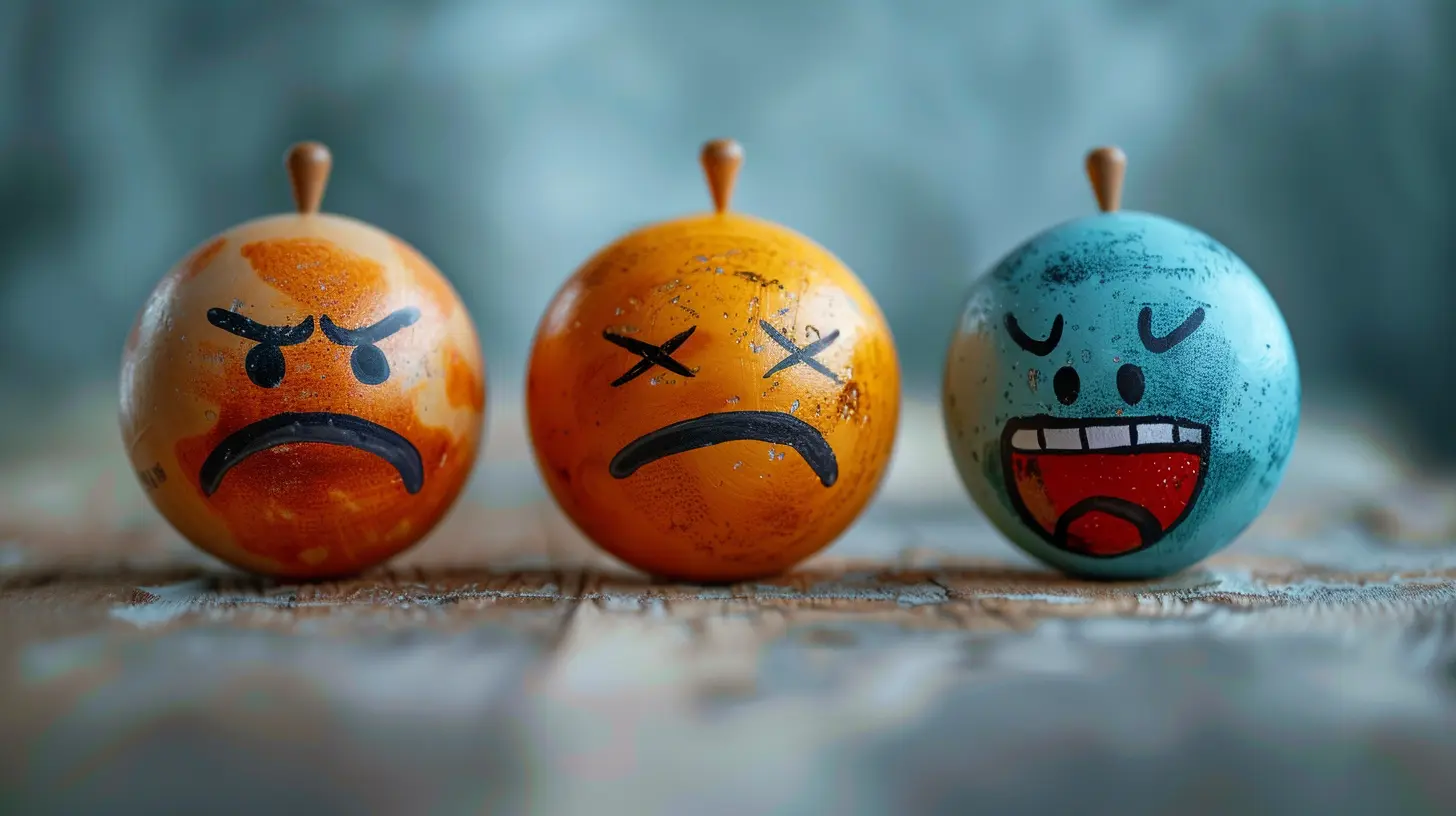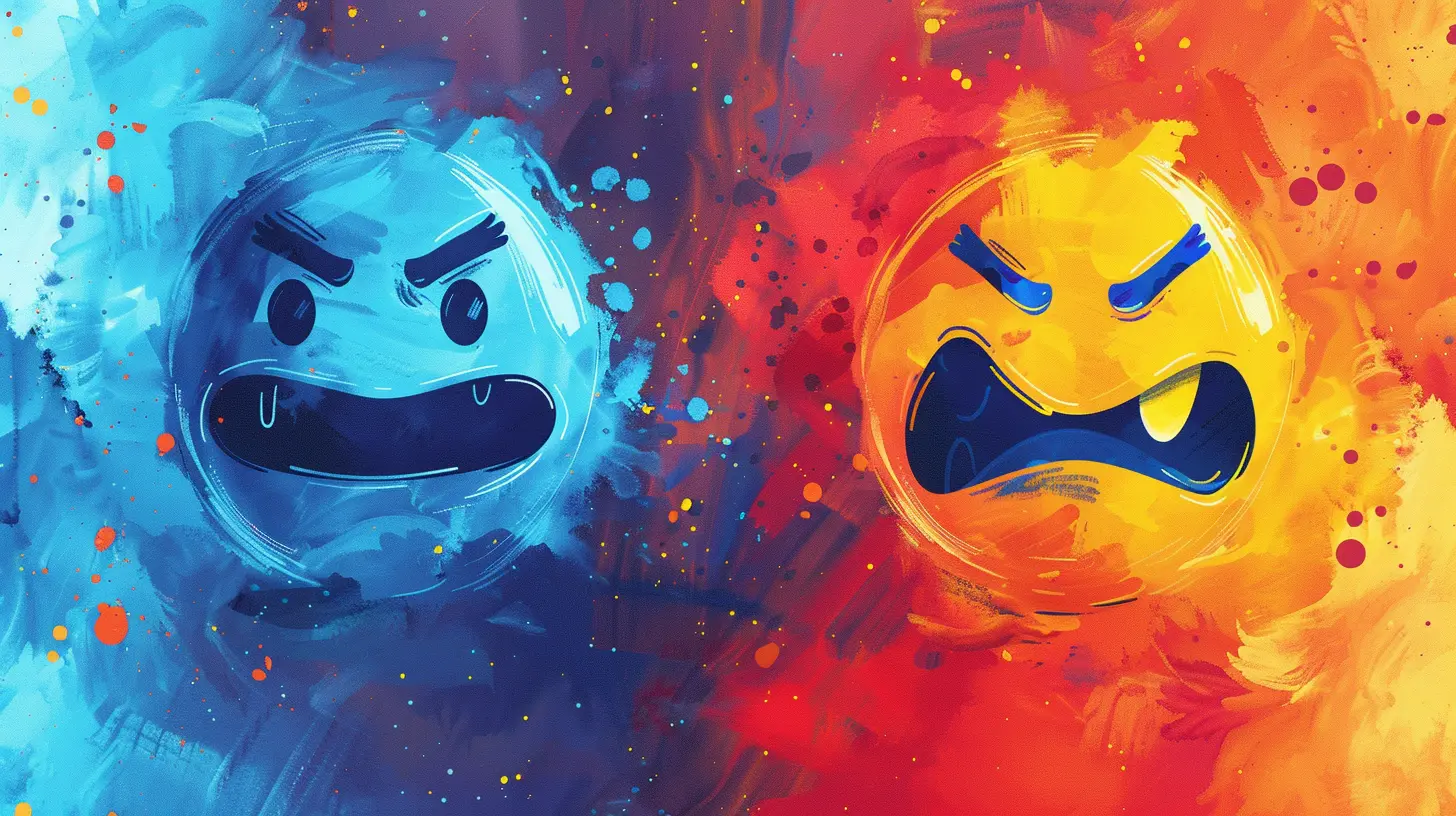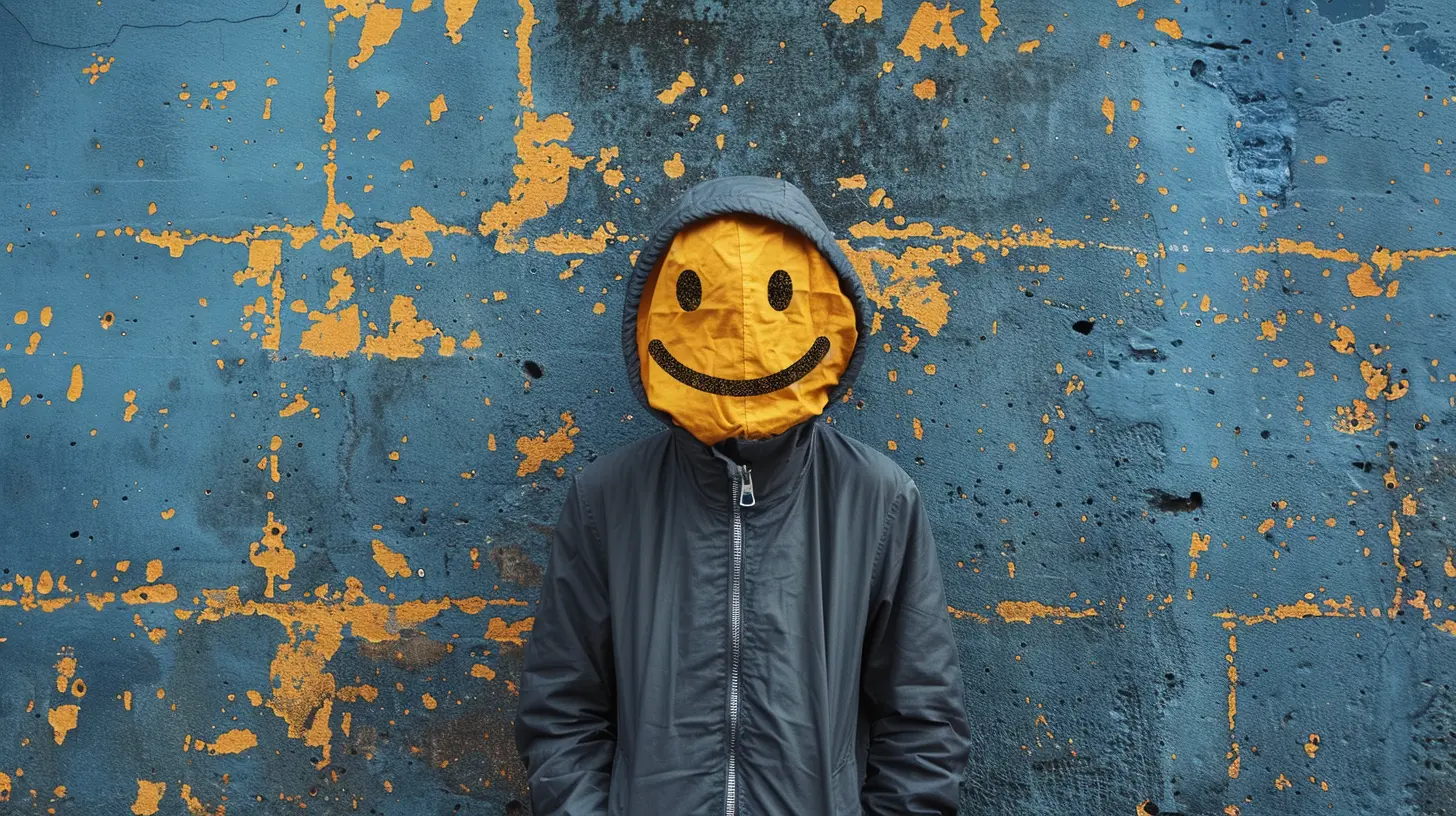The Dangers of Toxic Positivity: Why It's Important to Express Negative Emotions
5 October 2025
Alright, let’s cut the crap and talk about something that's quietly driving us all a little nuts — toxic positivity. You know, that overly cheery, sunshine-and-rainbows attitude that insists everything is “fine” even when your emotional house is burning down. Yeah, we see you, Susan from HR, with your “Good vibes only” coffee mug while the company is laying off half the staff.
So what exactly is toxic positivity, why is it so dangerous, and why should we all stop pretending that crying in the shower isn’t just part of the human experience? Buckle up, buttercup — we’re about to take a joyride through the dark side of fake smiles and forced gratitude.
What Is Toxic Positivity, Anyway?
Let’s get one thing straight: no one's saying you should wallow in misery 24/7 or start every conversation with a breakdown. (That’d be awkward. Trust me.) But there's a big difference between healthy optimism and toxic positivity — and one of them is basically emotional gaslighting in a glitter costume.Toxic positivity is this idea that no matter how bad things get, we should just "stay positive" and “look on the bright side.” It sounds sweet, right? Like a cupcake made out of poison. Because when you're constantly told to be positive, you're also being told your actual, valid emotions don't deserve a seat at the table. Ouch.
The Lies We Tell With “Positive Vibes Only”
Let’s be real — life’s not all puppy filters and inspirational quotes slapped on pastel backgrounds. Some days, your coffee spills, your boss schedules a Zoom meeting at 4:59 PM, and your cat throws up on your favorite shirt. But heaven forbid you mention any of that frustration. Instead, you're expected to slap on a smile and say, “It’s fine! Everything’s great!” Well guess what? It’s not.And here's the kicker: pretending to be okay all the time doesn’t make things better. It makes you emotionally constipated. Yep, we said it. You’re bottling up all that anger, sadness, and stress until it explodes in the most inconvenient way possible — like crying in the grocery store because they were out of oat milk. Again.
Emotions: They're Kind of a Big Deal
Imagine trying to live your life without ever feeling pain, disappointment, or anger. Sounds peaceful, right? Well, it's also impossible. Emotions exist for a reason. They’re like the dashboard lights on your car. Ignoring them doesn’t fix the problem — it just means you’re one pothole away from a total breakdown.Sadness, for example, shows up when something matters to you. Anger? It’s your brain’s way of saying, “Hey! This isn’t okay!” And anxiety? It’s annoying, yes, but it’s also your internal smoke alarm. These feelings aren’t just dramatic flair. They’re essential for self-awareness, growth, and, you know, being a functioning adult.
How Toxic Positivity Backfires (Hard)
1. Emotional Repression ≠ Strength
You ever try holding in a sneeze? It’s awkward, sometimes painful, and downright unnatural. Now imagine doing that with your emotions — every day. That’s what toxic positivity asks us to do. Push it all down. Smile through the suffering. Just be grateful you’re alive.Well, spoiler alert: bottling things up doesn’t make you strong. It makes you emotionally brittle. It’s like putting duct tape on a cracked dam and saying, “Problem solved!”
2. It Makes You Feel Isolated
Picture this: You're struggling with anxiety, but everyone around you is throwing glitter and yelling “Just think happy thoughts!” Now you're not just stressed; you feel broken for not being able to “snap out of it.” Toxic positivity creates a culture where people feel guilty for feeling human.You end up smiling in public and crying behind closed doors. And let’s be honest, that’s exhausting.
3. It Minimizes Real Problems
“Oh, you lost your job? At least you still have your health!” Cool, Karen, thanks for the checklist of things I’m supposed to be thankful for while I spiral into financial ruin. Instead of validating pain, toxic positivity sweeps it under the rug and tells you to move on. That’s not helpful. That’s dismissive.The Mental Health Toll Is Real
Psychologists have seen it time and again — the more people suppress their negative emotions, the worse their mental health becomes. We're talking increased anxiety, depression, burnout, and that lovely sense of alienation when everyone else seems fine except you.Toxic positivity can even make therapy harder. Why? Because people feel ashamed admitting they’re not okay. They wear a mask so long, they forget they’re allowed to take it off.
The Myth of "High Vibes Only"
You’ve seen the trend, right? Manifest this. Attract that. If your energy isn’t 100% positive, the universe will ghost you. But here’s the thing — the universe isn’t your ex. It won’t block you because you had a bad day.This whole “high vibes only” nonsense is just spiritual bypassing with better branding. It sounds empowering, but really it’s just another way to run from your problems while pretending it’s self-care. Spoiler alert: meditation won’t fix everything if you're using it to avoid your anger over your toxic job.
Why Expressing Negative Emotions Actually Rocks
Now, let’s flip the script. Instead of stuffing your feelings into that emotional junk drawer, what if you actually… expressed them? Shock! Horror! Growth?Yep. Talking about your emotions — even the ugly ones — is one of the healthiest things you can do. It's like emotional detox. Doesn’t feel great in the moment, but afterward? Pure relief.
1. You Build Resilience
When you face your emotions head-on, you learn to navigate them, not fear them. That’s real strength. Letting yourself feel disappointment or fear doesn’t make you weak — it builds emotional muscles. Think of it like mental push-ups, but with fewer gym selfies.2. You Improve Relationships
Fun fact: people connect through vulnerability, not perfection. When you open up about what you're really going through, you give others permission to do the same. It's like breaking the emotional ice — suddenly, everyone’s being real, not just annoyingly optimistic.3. You Get to Know Yourself
Emotions are like GPS coordinates to your inner world. If you ignore them, you're basically driving blindfolded. Want to understand your triggers, values, and what actually makes you tick? Then listen to — and express — your full range of emotions.Let’s Balance Things Out, Shall We?
Now, this doesn’t mean you should go full Eeyore and drag everyone down with your gloom. There’s a sweet spot between toxic positivity and full-on pessimism. It’s called… emotional honesty. Revolutionary, right?Try saying something like, “This sucks, and I know it won’t last forever, but right now it’s hard.” Boom. Balanced. You're acknowledging reality without letting it define you.
Ditch the Toxic Positivity – Here’s How
Okay, so how do you avoid becoming the “good vibes only” guy at the next brunch? Here’s some real talk:✅ Validate, Don’t Fix
When someone vents, don’t slap a shiny bow on their pain. Just be there. Say things like, “That sounds really hard,” or “I hear you.” Sometimes, the best way to support someone is to shut up and listen.✅ Check Your Language
Instead of saying “At least…” try “That sounds frustrating. Do you want to talk about it?” Small changes = big emotional impact.✅ Allow Space for All Feelings
Joy, anger, sadness, fear, envy — it’s all part of the emotional buffet. Don't just serve up the cupcakes and pretend the broccoli isn’t there too.✅ Teach Kids Emotional Intelligence
Let’s raise kids who know it’s okay to have a meltdown and then talk about it. Not ones who think they’ll get grounded for crying at a Pixar movie.✅ Be Real With Yourself
You’re not a robot. You’re not a motivational poster. If you had a crap day, say it out loud. Journal it. Punch a pillow. Call a friend. Just don’t pretend it didn’t happen.Final Thoughts: It's Okay Not to Be Okay
If you made it this far, give yourself a virtual high-five — because acknowledging the dark side of positivity takes guts. And here’s your reminder: You’re allowed to feel all the messy, uncomfortable, beautiful emotions that come with being a human.So the next time someone tells you to “just smile,” feel free to respond with, “I’ll pass — I’m processing my BS today. Thanks, though!”
Let’s stop glorifying constant happiness and start celebrating emotional honesty. Spoiler alert: it’s way more refreshing — and a hell of a lot more human.
all images in this post were generated using AI tools
Category:
Emotional ExpressionAuthor:

Paulina Sanders
Discussion
rate this article
1 comments
Easton McCarty
This article brilliantly highlights the pitfalls of toxic positivity. Acknowledging our negative emotions is crucial for genuine healing and connection. Embracing the full spectrum of feelings allows for authentic experiences, fostering deeper understanding and personal growth.
October 25, 2025 at 2:33 AM

Paulina Sanders
Thank you for your insightful comment! I completely agree—acknowledging both positive and negative emotions is vital for true healing and authentic connections.


